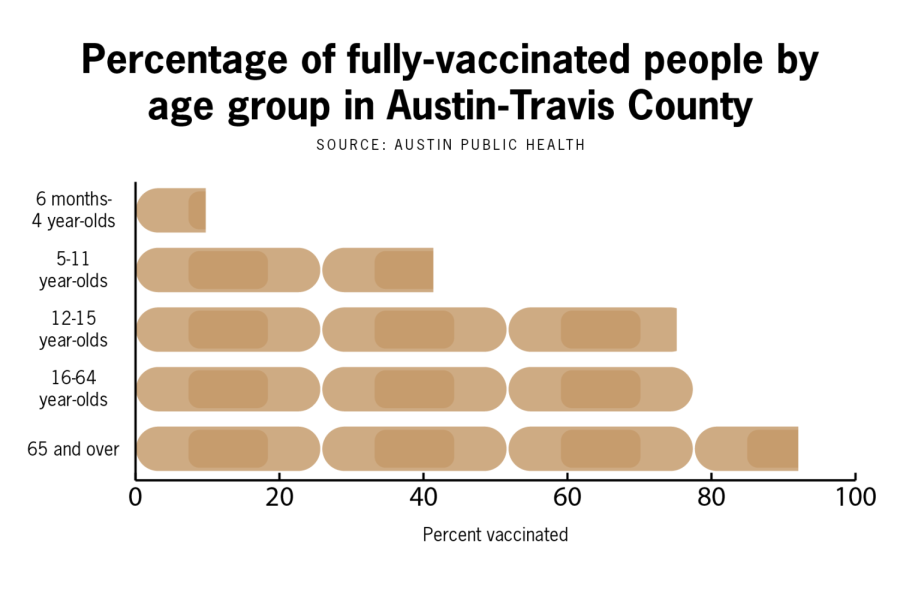Austin Public Health announces campaign to increase parents’ vaccine confidence
February 10, 2023
Austin Public Health announced in a Jan. 27 press release its “Be Your Child’s Hero” campaign, an effort to build parental confidence in the COVID-19 vaccine’s safety and efficacy.
The announcement comes as the city faces an active flu season and a new, more transmissible COVID-19 variant. As new variants hit the city, Austin-Travis County’s child vaccination rate remains low. According to APH, only 41.2% of children ages five to 11 are fully vaccinated, compared to 77.8% of adults. The campaign will partner with schools and childcare facilities to inform parents about vaccines and hygiene practices.
“There’s a myriad of reasons that could go into why somebody has chosen not to update their vaccines or get vaccinated in general,” APH’s public information and marketing manager Jen Samp said. “It could be access to health care. It could be access to clinics. It could be hesitancy.”
Vaccine hesitancy is not a new phenomenon. Samp said in the years leading up to the pandemic, a higher rate of parents chose not to vaccinate their children against measles — reflective of Austin’s “ongoing challenge with a strong anti-vax community.”
Samp said if parents have additional questions, a Community Health Worker Hub will serve as a “human factor” connecting people with social services and healthcare needs. She said it’s common for parents to have doubts about vaccines, especially with misinformation surrounding the subject.
“When we put out a message, it has been vetted by our local health authorities and epidemiologists,” Samp said. “And then you get somebody … (with) a large platform on social media debunking everything that we worked for.”
The Centers for Disease Control and Prevention recommends COVID-19 vaccinations for everyone six months and older. All children are eligible for booster shots at five years old. Children between six months and five years old are eligible if they completed the Moderna primary series.
Emily Rangel, president of the UT Student Parent Organization, said the scientific community’s backing of the vaccine’s development convinced her to vaccinate herself and her 19-month-old daughter. Rangel said she was pregnant with her daughter when she got vaccinated.
“Around January (2021), vaccines became available to … people at risk of developing serious illness,” said Rangel, a speech, language and hearing science junior. “Pregnant persons were included in that category … The benefits outweighed the potential risks for me.”
Rangel said she vaccinated her daughter a few months ago to prevent her from getting seriously ill if she got infected by the virus. She said it was harder to schedule an appointment for her daughter’s vaccine than when she got vaccinated.
“Most of the places I wanted to get her vaccinated said they only vaccinated (older children),” Rangel said. “After (her first shot), it was an easier process.”
A lack of vaccinated children compounded with the contagious flu, coronavirus strains and fewer people wearing masks led to a “perfect storm” that flooded the hospital system, Samp said.
“We still have kids in the hospital, some on ventilators, some in the ICU,” Samp said. “So even if this campaign helps, one kid, one person, I believe this would be worth it.”



